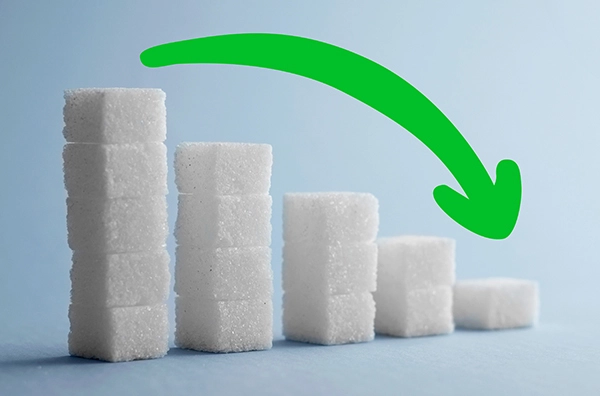Reducing sugar has become a prominent focus in the global food and beverage industry. As consumers become more health-conscious and governments realize the urgency of addressing public health concerns, the movement towards reducing the sugar content of products has gained momentum.
Germany’s Breakfast Cereals and Soft Drinks Revolution:
The sugar reduction movement in Germany has taken a strong stance on breakfast cereals and soft drinks. Manufacturers are challenged to create breakfast cereals with a significant 20% reduction in sugar content. This ambitious goal reflects a recognition of breakfast cereals’ role in the daily diet. The reduction target for soft drinks is also in the 15-20% range, underscoring the industry’s commitment to meeting consumer expectations for healthier beverage options.
France’s Voluntary Pledge to Cut Sugar in Breakfast Cereals:
Across the Channel, the French food industry has joined the movement to reduce sugar by pledging voluntary cuts. Manufacturers have agreed to reduce the sugar content of breakfast cereals from 3.8 to 15%. This range highlights the flexibility of the approach, allowing companies to tailor their formulations while trying to maintain taste and consumer appeal. This voluntary initiative exemplifies industry recognition of consumer concerns and proactive industry efforts to create more balanced choices.
The Impact of the SDIL in the UK:
The UK has taken important steps to curb excessive sugar consumption through the Soft Drinks Industry Tax (SDIL). Since its introduction in 2018, SDIL has delivered impressive results, resulting in a dramatic 44% reduction in the sugar content of beverages. This achievement underscores the power of government policy in driving positive change in the food and beverage industry. Through SDIL, consumers can now access a wider range of lower-sugar beverage options, contributing to improved public health outcomes.
Latin America’s Consumer-Centric Approach:
Latin America has seen increased consumer interest in reducing sugar, especially soft drinks. Reflecting this concern, 30% of carbonated soft drinks marketed in the region claim to have reduced sugar content. This trend highlights a shift in consumer preferences for healthier alternatives and demonstrates the responsiveness of manufacturers to these changing dynamics. The focus on reducing sugar requirements highlights the industry’s commitment to meet changing consumer needs.
Brazil’s Industry-Wide Commitment:
In Brazil, the food and beverage industry has come together to tackle sugar reduction on a large scale. More than 1,100 products were tested to reduce sugar content by 2022, signaling a collective effort to improve nutrition. This commitment demonstrates the industry’s willingness to adapt and innovate, ensuring consumers access products that align with their health goals.
Innovative Solutions and the Road Ahead:
The global movement to reduce sugar is embraced by consumers and manufacturers and promotes innovative solutions. From alternative sweeteners to innovative formulation techniques, the industry is exploring ways to maintain product flavor and appeal while reducing sugar content. These innovations, from natural sweeteners to product formulation improvements and portion control, underscore the industry’s commitment to finding the right balance between taste and health.
The sugar reduction movement is an impressive testament to the joint efforts of governments, producers, and consumers worldwide. As the cases of Germany, France, the United Kingdom, Latin America, and Brazil illustrate, sugar reduction initiatives have led to significant progress towards healthier diets and have yielded good results regarding public health. Different regions’ commitment to addressing the sugar content of products underlines the importance of prioritizing the health of consumers and the power of collaboration to shape a sweeter future that is also healthier. With innovative market-leading solutions, the sugar reduction movement is poised to continue its transformational journey, leading to a world where taste and health coexist seamlessly.


